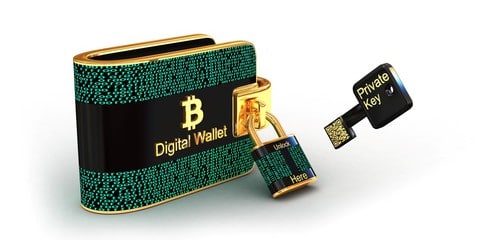With the increasing popularity of digital assets, understanding cryptocurrency concepts is crucial.
Central to these concepts is the notion of a crypto wallet. But what exactly is it? And how does it work?
As part of your digital currency journey, let’s delve into the world of crypto wallets and unravel their functioning.
Source: unsplash.com
What is Cryptocurrency?
Cryptocurrency is a digital or virtual form of currency that employs cryptography for security.
Bitcoin, the first cryptocurrency, was a novel idea that shook the traditional financial systems, providing a way to transfer wealth without a central authority.
This revolutionary technology spurred a new era of finance, unlocking a wave of cryptocurrencies, each with its distinct features and uses.
Understanding Blockchain Technology
The backbone of any cryptocurrency is blockchain technology. In simple terms, a blockchain is a chain of blocks where each block stores transaction data.
It’s a public, transparent ledger that’s practically tamper-proof, thanks to complex mathematical algorithms.
Importantly, blockchain technology is decentralized, meaning no single entity has control over the entire network.
What is a Crypto Wallet?
In essence, a crypto wallet is a tool for interacting with a blockchain network.
Despite its name, a crypto wallet doesn’t physically “store” your digital coins. Instead, it keeps pairs of cryptographic keys: public keys (akin to a bank account number) and private keys (similar to an ATM PIN).
These keys are crucial for initiating and authenticating transactions on the blockchain.
Types of Crypto Wallets
Crypto wallets come in various forms, each with its unique features:
Online Wallets: Also known as web wallets, these are accessible through a web browser. They offer convenience but may be vulnerable to online threats. Good example is Exodus. You can read an extensive Exodus wallet review here.
Desktop Wallets: These are software applications downloaded on a PC or laptop. They offer better security than online wallets.
Mobile Wallets: Mobile wallets are apps on your smartphone, offering the best balance between convenience and security. An example is the Exodus wallet.
Hardware Wallets: These are physical devices that store your keys offline, providing the best security against online threats.
Paper Wallets: These are physical print-outs of your public and private keys. They provide an old-school yet effective cold storage solution.
Source: unsplash.com
How Does a Crypto Wallet Work?
Sending or receiving cryptocurrencies involves digital signatures, which is where your crypto wallet steps in.
When you send crypto, your wallet uses your private key to sign the transaction, marking it as genuinely yours.
The network then verifies this signature with the corresponding public key on the blockchain. If everything matches, the transaction is validated and added to the blockchain.
The Importance of Crypto Wallets
Crypto wallets are the gateway to the world of digital assets. They grant user autonomy, allowing you to be your bank.
They also enhance privacy, as transactions are pseudonymous, linked only to your wallet’s public address.
Moreover, because crypto transactions bypass traditional banking systems, they often incur lower transaction fees.
Common Misconceptions about Crypto Wallets
With new technology often comes misunderstanding. It’s important to debunk two common myths about crypto wallets:
Wallets don’t store physical coins: As mentioned, wallets store cryptographic keys, not coins. The digital coins exist on the blockchain.
Losing a wallet doesn’t mean losing your coins: As long as you have your private keys or recovery phrases, you can restore your wallet and regain access to your coins.
Exodus Wallet Review: A Quick Insight
While discussing mobile wallets, a mention of the Exodus wallet is a must. User-friendly and intuitive.
Exodus supports a wide range of cryptocurrencies, making it a one-stop shop for many users.
Moreover, it provides a built-in exchange for trading digital assets. However, like any technology, it’s essential to review its security measures and decide if it fits your needs.
Conclusion
In the world of cryptocurrencies, a clear understanding of crypto wallets is vital.
They are the gatekeepers of your digital assets, providing the tools you need to transact on the blockchain.
As with all technologies, remember that the level of security largely depends on how you use it.
So, choose your wallet wisely and secure your financial future in the exciting world of digital currencies.









